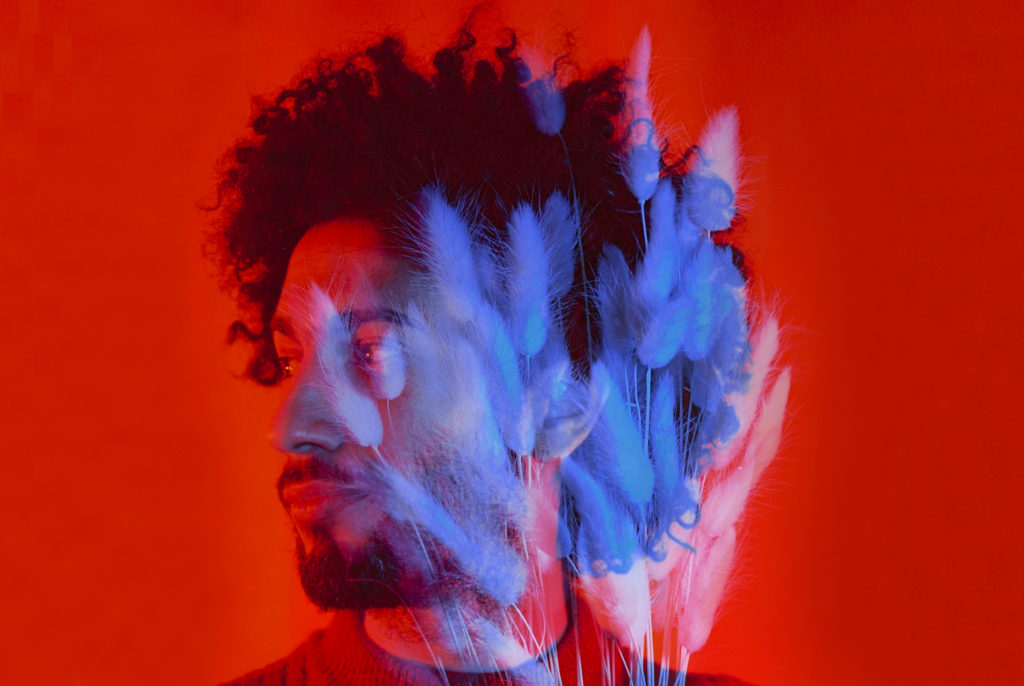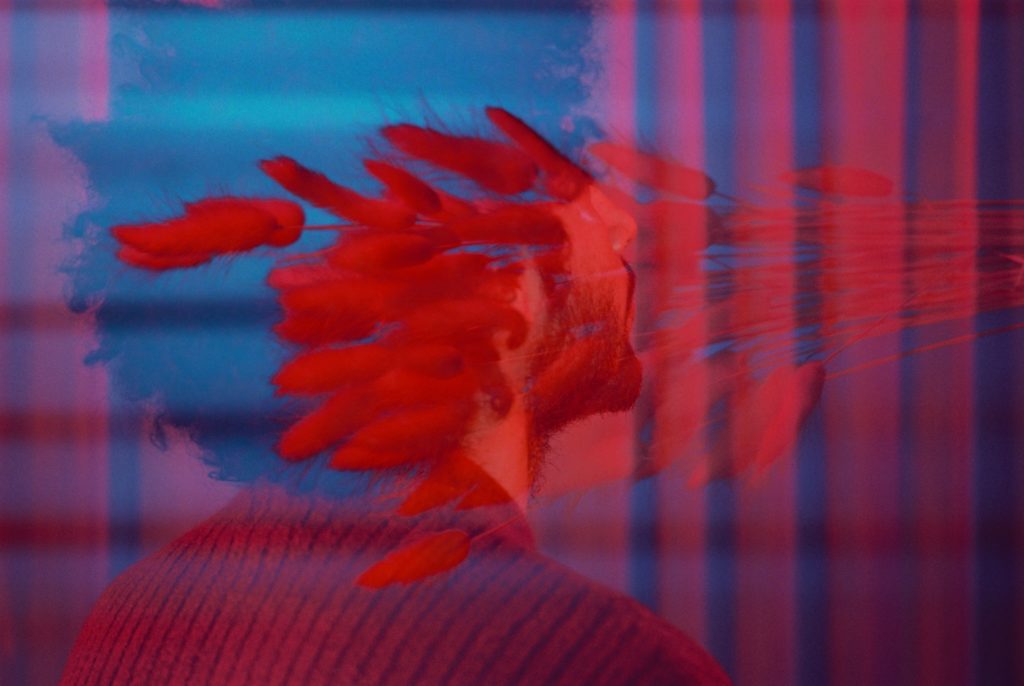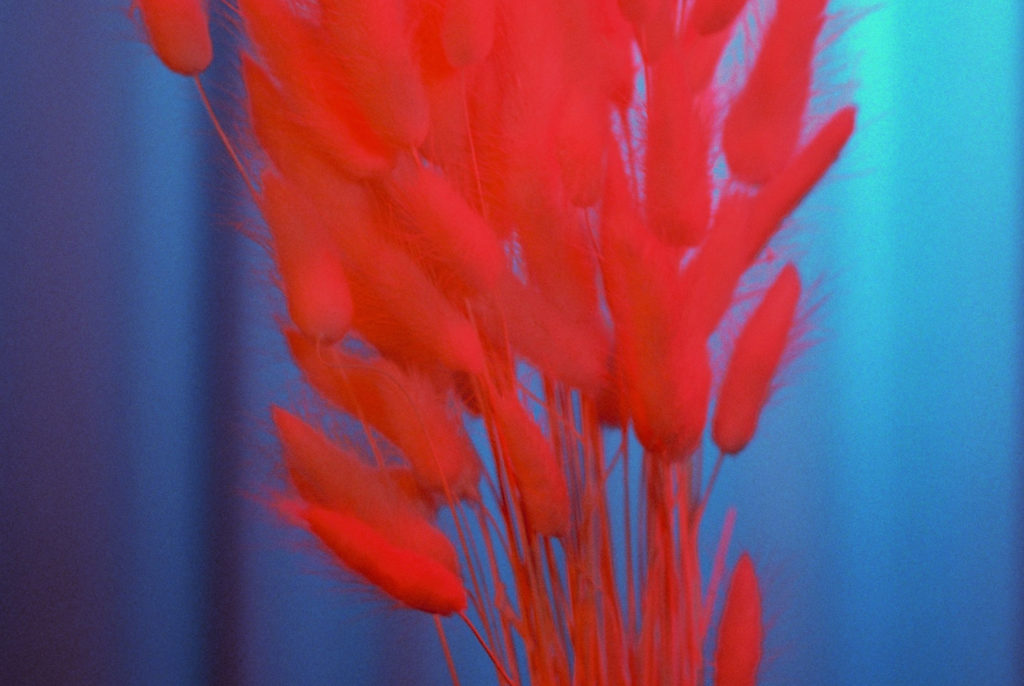In the shade of the eucalyptus tree

Just like our bodies, our dreams and thoughts occasionally migrate to the past, where beauty and pain reside side by side amongst our memories. Sometimes, they journey to the future too, in an attempt to escape the harshness of reality. We do like the swallows, who leave their homelands in search for warmth and sustenance in faraway countries. We too abandon our homes in search of new places, where we can reside in safety and security. Every time we depart from a place, we also leave behind countless memories and many loved ones. In every new place, we find a new reality.
Just like our bodies, our dreams and thoughts occasionally migrate to the past, where beauty and pain reside side by side amongst our memories.
Abu Khalil, a man with grey hair and olive skin, left his village in the Syrian Golan Heights when the war began in 1967. Following is the account of his still-ongoing journey and his many stories and memories of resettling in Amman, Damascus and Beirut.
***
The Golan roots
I used to live in a village in the Syrian Golan Heights with my father, brothers and grandparents. We lived in a small house with a large guest area for visitors, a living room, a kitchen with a small adjacent pantry for mouneh (a tradition of food preservation in the Levant), where my mother used to store food for the winter. This is usually food put in jars, such as balls of labneh, olives, dried figs and apricot jam.
There was a big eucalyptus tree in front of the house, where my grandfather used to sit with his friends who gathered there almost every morning. They used to chat, talk and laugh together, sitting on large black stones under the tree. I can barely recall their conversations now, all I can remember is that they were happy, sipping on the bitter Arabic coffee my father used to make for them.
My grandmother spent most of her time in the backyard, helping my mother prepare the meals. They sat together and sifted the lentils and bulgur for the dishes of the day with care and attention. My grandmother, as she sat in the sun, would tell us that the sun strengthens our bodies and prolongs our life.
My grandmother, as she sat in the sun, would tell us that the sun strengthens our bodies and prolongs our life.
My mother worked around the house all day and took care of my younger siblings. She would rise with the sun in the mornings to prepare my father’s zawwada, which in the Golan dialect is the daily meal prepared for men going to work or on long trips, usually wrapped in cloth. Then, she would bid him goodbye before he set off to work.
My father worked as a tailor. He used to leave the house in the early morning and did not come home before the evening. Every day, we would welcome him with the same enthusiasm. He would smile at us, full of happiness and joy. He often took out qdameh, roasted chickpeas, from his pocket and gave them to me and my siblings.
After sunset, we prepared dinner and sat down together at the dining table, listening to my grandparents chatting. We went to bed in the dark evening, to sleep until the next sunrise.
A journey of torment
There is one day I will always remember: the wedding day of my uncle Khaled, the youngest brother of my father. It was a beautiful and sunny day. As our wedding traditions have it, all men, women and children from the village were invited. Relatives and neighbours, old and young – all showed up at the house of the groom.
The men prepared and decorated the yard, setting up wooden chairs in the shade of the large eucalyptus tree. The elderly women, the expert cooks, prepared food for all the invitees. At weddings in the Golan, the main item is mansaf, a dish made of lamb and burghul and served with laban, or yogurt, served on a big tray. People sit in groups of four to five and share the tray between them.
There is one day I will always remember: the wedding day of my uncle Khaled, the youngest brother of my father.
In the afternoon, people began to gather in the yard. Soon, the men joined their hands to form a circle resembling the sun, and began to dance traditional dabke to the sounds of mizmar flutes and the beating of drums.
But our joy was short-lived on that day. Suddenly, we got news from the neighbouring towns that we had to evacuate the village swiftly. Only a few hours, we heard, separated us from death.
People started to leave the wedding in a frenzy. Parents gathered their children in panic, and ran to their houses to collect whatever belongings they could before leaving. In a flash, the music ceased, the dancing stopped and our joy turned into sadness and panic.
My mother could not take any of the gold jewellery that she had hidden underneath the roof of the house. “We don’t have the time to take the gold, just pick up the radio,” my father told her.
The radio became the most valuable thing for both my father and my grandfather: it came to represent hope for them, a chance that it would some day broadcast news that we would be able to return to the village.
“I held the radio in my arms as if it was a child that I feared losing,” my mother said. “Your father and I took turns to carry it along with your younger siblings.”
I still vividly remember the panic and fear in everyone’s eyes. My grandmother was standing very, very close to the wall, as my father carried my siblings, and then helped my grandparents out of the house.
Only a few hours, we heard, separated us from death.
On that wedding day, we left our plates almost full. The music was replaced by the cries of children and the wailing of women which soon filled the streets, as people left the village in a surreal procession, as if it was the Day of Resurrection. Some brought their sheep and donkeys along on the journey. The elderly men and women took turns to ride on the donkeys’ backs.
A few long miles into the road, people began to scatter so as not to attract any attention. We parted ways in small groups. In moments of fear and anxiety, we hid under thick trees and thorny bushes, completely silent, barely breathing.

Displaced to Jordan
We arrived in Jordan, where we were received by other families who had fled the Golan Heights before us. It was the middle of the night when we arrived, and people were hungry and scared.
Young men and women began to distribute food to us, the newcomers. Everyone was in shock. I remember that when I fell asleep, I felt totally exhausted and drained. I spent the night on the floor with no mattress or blanket. I woke up when the sun’s rays filtered through the small window and struck my face.
I spent the night on the floor with no mattress or blanket. I woke up when the sun’s rays filtered through the small window and struck my face.
On our third day in Jordan, the men from the village gathered in the town square. They embraced my father and grandfather and said their goodbyes. Everyone was thinking about their next destination. Where would we go, would we stay in Jordan or go back to Syria?
My father decided that our family, like several others, would head to Damascus. He thought that the city would welcome and embrace the displaced families from the Golan. Many thought, like him, that the capital would bring them safety and stability, and maybe the possibility of returning to their lands some time in the future.
Back to Syria
On this journey, we headed first to the governorate of Daraa in Syria. Many families did like us, because of the proximity of Daraa to the Jordanian borders and the Golan Heights. When we arrived in Daraa, people received us in their homes. There are many things in common between the people of the Golan and Daraa; we share many customs and traditions, and even speak in similar dialects. We spent a few weeks there before we resumed our journey to Damascus.
Displaced to Damascus
When we reached Damascus, the different families scattered in the city. We all found different concrete, unfinished buildings to settle in. We hoped that our stay there would be short. We kept hearing promises that the people of the Golan would return to their homes soon. But the days went by and we never went back.
“Plant a similar tree in the yard, maybe it can bring back some memories.”
All of us, the families arriving from the Golan, settled in the towns of Al-Hajar Al-Aswad, Sbeneh and Babbila on the outskirts of Damascus, which were made up of mostly poor neighbourhoods and slums. As the years went by, we integrated into the social fabric of the cities. Some opened their own businesses, and their children went to schools and colleges. Some families moved, and built houses in different parts of the capital.
The eucalyptus tree takes root again
One year after we had settled in Damascus – and lost hope that we would soon return to our land – my family decided to move to a small traditional house in one of the working-class neighbourhoods of Al-Hajar Al-Aswad. We began preparing the house, which had three rooms and a small area in the middle with beautiful plants.
One day, my grandfather sat outside in the yard, leaning on his cane and reminiscing about the days when he used to sit under the eucalyptus tree in our village in the Golan. He told my father, “Plant a similar tree in the yard, maybe it can bring back some memories.” And so my father did.
“I am waiting for you to grow up so I can sit in your shade again,” he would tell himself.
The growing tree brought great joy to our family. Every morning, my grandfather would sit outside, gazing at the seedling. “I am waiting for you to grow up so I can sit in your shade again,” he would tell himself.
Yet, my grandfather felt lonely without his friends, and eventually died alone, away from them, in Damascus. He died far from his land, before the new tree grew and before he could sit in its shade again. He died, and the dream of returning to our original eucalyptus tree and the house he built with his own hands died with him.

The word “displaced” is what hurts me most
Living in Damascus, we were often called “displaced” by our own countrymen and fellow citizens. The areas where we lived came to be known as the “displaced neighbourhoods”. We heard the word “displaced” everywhere: at schools, at work and in our daily life. We felt discrimination in our own homeland, by people from the same country as us. It took such a great toll on me that I even feared to marry a woman that was not like me, “a displaced person”. I feared social rejection.
Then, as time passed by, relations with others in the city grew better and smoother, yet there was always room for discrimination somewhere in society.
We heard the word “displaced” everywhere: at schools, at work and in our daily life.
Thinking back at that time now, the urban sprawl and overcrowded areas of Damascus are what I remember the most. Our neighbours in Al-Hajar Al-Aswad, where the majority of people from the Golan lived, were Palestinians refugees. I found myself drawn to the strong bonds within their community, and a sense of familiarity between them and us. Perhaps it was the suffering that we both shared.
I remember a street called Street 30 that linked the Palestinian camp Yarmouk to Al-Hajar Al-Aswad. In the middle of the street was a popular coffee shop that used to get crowded every evening. You heard the sound of dice rolling and pieces moving on the backgammon board from inside the café, and the smell of tea and coffee lingered in the long strands of shisha smoke. The men inside would chat and talk loudly about their dreams and aspirations. The coffee shop was the only outlet for many living in the area.
A refugee in Lebanon
Before the end of 2014, when the situation in Syria had deteriorated badly, we left Damascus for Lebanon. We left behind our house in Al-Hajar Al-Aswad, our second eucalyptus tree and the grave of my grandfather, who after he died got buried in Damascus.
I brought with me canary birds in a cage when we left Syria for Lebanon. My father left the Golan carrying his radio, I left Damascus clutching a cage of birds in my hand.
We decided to stay in one of the Palestinian camps in Beirut. There, we got to know another word, “refugees”. Our destiny, it seems, is to never live in peace or enjoy the warmth of our homes.
But Lebanon somehow offered us the quiet and tranquility we had longed for so much. I no longer heard the sounds of flying jets and missiles. My children were finally able to sleep better.
My father left the Golan carrying his radio, I left Damascus clutching a cage of birds in my hand.
Now, I sit every day staring at the roof of the small house we rent in a poor area in Beirut. I stare at the mildew and cracks, and ponder over our life. How we always lose so much in our homelands. I long for the coffee shop evenings, my friends and our neighbours.
We have lived as refugees in Lebanon for six years now. Two years ago, we applied for resettling in Europe through the UN. But the pandemic and closure of airports means that we are bound to remain here for now, and no one knows for how long. We remain awaiting our new destiny and a chance to live a decent and safe life, after so many years of being stranded in different places. And we still have hope that one day, we will return to the Golan, the land of our ancestors, and the shade of the eucalyptus tree.
Inner migration was produced as part of the Switch Perspective 2020-2021 project, supported by GIZ. All illustrations by Aude Nasr. Story translated from Arabic by Sahar Ghoussoub.







